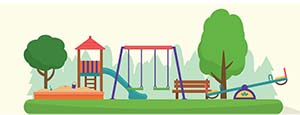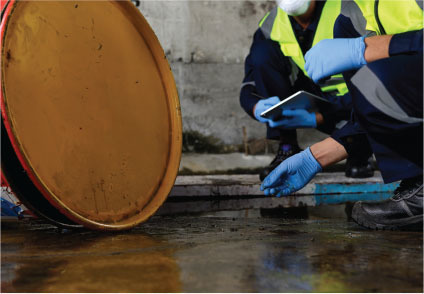March/April 2020
On Ethics: You Be the Judge
Play Time or Pay-to-Play Time?
Situation
Kate Gleason is the owner of an engineering firm in a small town. Gleason and her firm frequently perform engineering services for the town and also for other local agencies that are overseen by the town council. Recently, Gleason and her firm were selected by a local agency to design a major public project in the town. Following the firm’s completion of the project, Dale Worden, the town engineer who leads a panel that approves the selection of engineering firms performing services for the town and other local agencies, asks Gleason and her firm to donate engineering services to design a playground on behalf of a local not-for-profit organization that the city council member is active in and supports. Before Gleason has a chance to reply, Worden advises Gleason that her firm’s design of the playground will “keep her and her firm in good graces” with Worden regarding future work with the town or other public work.
What Do You Think?
 Was it ethical, under the facts, for Worden to ask Gleason and her firm to donate engineering services to design a playground on behalf of a local not-for-profit organization that the city council member is active in and supports?
Was it ethical, under the facts, for Worden to ask Gleason and her firm to donate engineering services to design a playground on behalf of a local not-for-profit organization that the city council member is active in and supports?
Would it be ethical for Gleason to donate engineering services for the playground design under the circumstances?
What the Board of Ethical Review Said
The obligation of professional engineers to be of constructive service to the community and serve the public interest has been a hallmark of professional engineering. Professional engineers contribute to communities by serving on public boards and civic groups, volunteering with not-for-profit community and youth groups, supporting and contributing to important public and private initiatives, and in many other ways.
In performing their professional services, professional engineers must be mindful that such service is personal in nature and a reflection of their values and commitment. Such service in many ways reflects who they are as professionals but should be viewed as separate and apart from what should be expected from them in their business relations with clients. To this point, it would be a mistake for either a professional engineer or a client to mix or confuse an individual’s role in performing as a professional engineer and the individual’s role in making contributions to the public. While these two roles may be complementary, there is a potential danger when the two are intermingled.
In this case, a representative of a public client (Worden) has an expectation (and express authority) that a professional engineer (Gleason) will donate engineering services which, while a public good (the design of a local playground) that will benefit the community, will also have the effect of enhancing the personal and political interests of the representative of the public client (Worden). In effect, Gleason and her firm are under a degree of duress—the implicit promise of future work or the withholding of future work—if Gleason does not accede to Worden’s personal request to donate services.
The NSPE Board of Ethical Review has considered cases involving gifts to public officials, including state department of transportation employees. In BER Case 05-6, the BER was faced with a series of gift scenarios and in conclusion noted that engineers must be mindful of all rules and regulations that would apply to government employees and would ultimately govern. Engineers have an obligation to adhere to those rules and regulations, which may prohibit the receipt of such gifts. In addition, for parties contracting with state government, engineers may be barred from providing such gifts to government employees.
In this case, Gleason may have had a desire to support this initiative separate and apart from Worden’s request to support the playground project. However, Worden improperly entangled Gleason and her firm’s professional services with his request for support for the playground project. Gleason must clearly communicate with Worden—a party who has influence and authority over the selection of engineering firms to perform work for the town—that Gleason has no intention of abiding by his request to assist with the playground project as a condition for future work with the town or other public work. Any other action would amount to an effort to make a contribution (in-kind services) to influence the award of a future contract.
Conclusion
It was not ethical for Worden to ask Gleason and her firm to donate engineering services for the design of a playground on behalf of a local not-for-profit organization that he is active in and supports.
It would not be ethical for Gleason to agree to donate engineering services for the design of the playground under the circumstances.
NSPE Code References
III.2., III.3., III.5.a., and III.6.
For more information, see Case No. 16-11.


 Volunteering at NSPE is a great opportunity to grow your professional network and connect with other leaders in the field.
Volunteering at NSPE is a great opportunity to grow your professional network and connect with other leaders in the field. The National Society of Professional Engineers (NSPE) encourages you to explore the resources to cast your vote on election day:
The National Society of Professional Engineers (NSPE) encourages you to explore the resources to cast your vote on election day:


